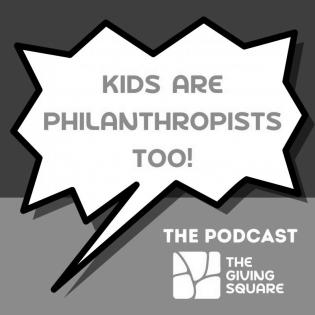What Is the Refugee Experience Like for Kids Today?
In this episode of the Kids Are Philanthropists too! podcast, we continue to explore the immigrant and refugee experience with an interview with special guest Catelijne Sillevis, Head of the Department of Child Psychologists at Nidos Guardianship for Refugees in the Netherlands.
Our host is Amy Neugebauer with 11-12-year-old co-hosts Jayden, Alona, Leo, Ismahil, Ibrahim, and Sam, all part of The Giving Square community.
Learners will know and be able to
- speak with respect and empathy about refugee and immigrant experiences.
- name some challenges experienced by children who are refugees.
Link to the Kids Are Philanthropists Too podcast Episode 7: "What is the refugee experience like for kids today?"
Related Resources:
- Lubna and Pebble by Wendy Meddour (author) and Daniel Egnéus (Illustrator) literature guide
- A Different Pond by Bao Phi (author) and Thi Bui (Illustrator) literature guide
- La Frontera by Deborah Mills (author) and Alfredo Alva (author) and Claudia Navarro (Illustrator)
- Gibberish by Young Vo
- Drawn Together by Minh Le (author) and Dan Santat (illustrator) literature guide
- Muhammad Najem, War Reporter by Muhammad Najem (author) and Nora Neus (author) and Julie Robine (Artist)
Learn about an organization that helps people get settled in the U.S.
Instructions
Opening Questions
What do you know about the war in Ukraine? What causes children to become refugees during a war?
Play the Kids Are Philanthropists Too podcast Episode 7: "What is the refugee experience like for kids today?"
Discussion Questions
- What surprises you about the conversation with Catelijne? What did you learn?
- For what reasons do children travel alone or without their parents as refugees? How do war, poverty, and political situations lead to kids leaving?
- What are the particular concerns in getting children (as opposed to adults) settled in a new country when they are refugees?
- How do some nonprofits help?
- What did Catelijne mean when she said that “children are resilient”?
Extensions
- Learn about a local nonprofit organization that helps refugee children and families get settled in the U.S. Ask how kids and families can get involved.
- Write words of encouragement for refugee children or share information about the community to help them get to know their new home.
- If there are refugee children in your school or community, be bold about befriending them. It is okay to be curious about meeting refugee kids and learning about where they come from.
- Listen to our latest podcast.
